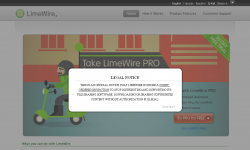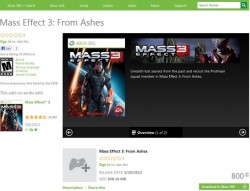Weekly News Roundup (22 July 2012)
Welcome to another edition of the WNR. I’m trying out a new way to write the WNR this week, as opposed to leaving everything until the last day, I’m writing a bit every day, mostly after one of the mentioned news articles has just been posted online. The advantages are obvious – having just written a news article, I’m still very fresh on the things I wanted to say but normally wouldn’t be able to in the article itself (the “news” versus “opinion” thing), and it also means less work on Sunday, which is always a good thing. On the other hand, it may mean the different sections, all written at different times, don’t flow as well. Not that they flowed well before, but it might be even worse now!
But then again, I get most of Sunday off, so that’s good enough a reason for me!
While I was plugging away at this WNR during the week, I also had time to write and uploaded the June NPD analysis, for video games sales in the US for that month. The big surprise for me was how far the Wii has fallen, down some 75% in sales compared to two years ago, and how badly the PlayStation Vita is doing (selling less than 100,000 units just a couple of months after its release – even the venerable, but ageing, Nintendo DS sold a lot more units, not to mention the 3DS). I just think Sony has misjudged the market again, and they don’t have killer titles that Nintendo has to attract the wider range of gamers that still rely on a dedicated portable gaming device (ie. not already using a smartphone or tablet to do the same thing). The Vita is a cool gadget, but do people really need another cool gadget?
Onto the roundup proper now …

For a long time, Big Content has told us that people who pirate movies and TV shows, the no good thieving cretins, are only doing it because it’s free. But survey after survey shows that, at least in the minds of movie pirates, price is never the biggest issue. And this week, we have yet another such study which puts forward the theory that people are pirating because of service issues, and not one of price.
A new 2,000 user study in Denmark found that the majority of them would love to go legit if the conditions are right, with the conditions being the three C’s: Convenience, Choice and Content (the availability of it). The survey found that for movie downloaders, being able to watch the latest movies without having to jump through DRM hoops or register a billion times, is what makes piracy so attractive. For TV show pirates, having access to the latest shows hours after they originally aired is key. I’ve said it before, and I’ll say it again, for TV shows, a two day wait might as well be a two year one, because nobody is *that* good at avoiding spoilers online. For those in Denmark, and despite having a large percentage of English speakers, I would gather having speedy access to subtitles would also be helpful – the “scene” can get it done within about 2 days, but it being totally possible for official subs to be provided at release time, localisation of legit content often takes weeks and months.
So given the current inadequate levels of service, what can Big Content do to get people back on the straight and narrow? This is where pricing comes into it, according to the study. 72% of those surveyed said that lowering prices will entice them to go legit and ignore the service problems that currently exist. 47% also stated that if content was made available sooner, even the high prices might still make legit downloads and streams attractive.
But for me, the most striking data was the one that showed that 47% of 15 to 20 year olds that buy or rent legit content also pirate, suggesting that you can’t just separate pirates from paying customers into two neat groups. Which is why Hollywood’s attempt to kick pirates off the web might actually hurt them more, as they’re also preventing nearly half of their current online based customers from buying or renting more content. Knife meet nose, face spited.
Unfortunately though, it seems the industry’s propaganda machine is also working well, with three quarters of those surveyed believing that piracy rates are two-thirds higher than they actually are. 75% believed that 25% of all Danes pirated stuff, but the actual rate is closer to 15%.

LimeWire was closed down ages ago, but the court battles continue – this time in a rather indirect way with David Alki suing CBS owned CNET for distributing the software
David Alki’s lawsuit against CNET, and its parent CBS, had some developments this week, with both sides claiming victory (as usual). CBS are claiming victory because two of the three claims made by Alki and his coalition of music artists have been summarily dismissed by the judge, while Alki and co. are claiming victory because the third claim has been left in the case. That claim is the one relating to “inducement”, in that Alki claims CNET induced people to download LimeWire and pirate music. The case continues, but it seems the judge is fairly certain CNET had not acted wisely in this whole affair, and so Alki’s team definitely have reason to celebrate.
Why Alki is doing what he’s doing still puzzles me. I’m fairly certain it’s to point out the hypocrisy that exists within large media conglomerates and their attitude towards copyright infringement – remembering that CBS sued Alki’s FilmOn for copyright infringement and won – but I just can’t be sure. Irony doesn’t translate well over the Internet, and it certainly doesn’t translate well from lawsuits. But I do agree with Alki – for a lot of media companies, nothing is sacred, not even copyright, as long its in their own interest. Remember when Sony were putting DRMs on CDs and DVDs, and at the same time, they were one of the major sellers of blank CDs and DVDs that people were using for piracy? Or how movie studio steal ideas and concepts from each other all the time, although not strictly a copyright issue, but not exactly in the spirit of respect for intellectual property that these same companies harp on about when it comes to suing downloaders.
But while I do support Alki’s mission to point out the hypocrisy within, I’m not sure I can actually support the idea that simply having guides and videos about LimeWire (while offering the download) constitutes “inducement”. For most of the time CNET were offering the downloads and content, LimeWire had not been proven in a court as being illegal. And if CNET is guilty, then what about all the other download and guide sites, including this one? Download websites would often have things that promote popular downloads (eg. top 10 lists, spotlights), and would these constitute “inducement” even though, most of the time, it’s done by an algorithm and not a person? Would Google then be guilty of the same thing if they returned the LimeWire website as a top result for the search “music downloads”, for example? What I’m saying is that a decision for Alki and co could have dramatic consequences for the web, and I’m not sure if that’s Alki’s intention, and I definitely don’t think it’s worth it just to get back at CBS.

Ubisoft’s UPlay crashed because too many people had purchased their games – a problem the company had not faced before!
UbiDRM is back in the headlines this week, as once again we see why having online authentication for single player games are a bad idea, especially for companies not willing to invest in the infrastructure needed. What had happened was that the annual Steam Summer Sales event, and this particular sale now included a lot of Ubisoft titles that uses their Uplay online system. Uplay is basically Ubisoft’s answer to Steam, with their own added layer of DRM thrown on top (not always the “always-online” type though). With the sudden surge in sales that always happens with Steam sales, and the subsequent surge in the number of users trying to connect to Uplay, the servers crashed as expected.
Lack of planning, lack of redundancy and extra capacity, are all to blame. And the games that use always-online authentication are the worst when it comes to using up server resources, since instead of a connection at the start of each gaming session, we’re talking about one every second. And without an offline mode to occupy gamers while the Uplay servers were down, no surprise that gamers took to the Internet, specifically Ubisoft’s forums, to lodge their complaints.
See, what I don’t get is how Steam are able to handle the traffic of not only the Ubisoft games trying to authenticate, but all the other games as part of the sale, and Ubisoft can’t? I think the main reason is that for Ubisoft, Uplay has not been the highly profitable platform that they might have imagined (due to the “defeat” of piracy, as well as the value-added features), and so they’re unwilling to invest in enough capacity to handle relatively rare situations like this. Whereas the Steam platform is a revenue earner and so ongoing investment in it is a necessity. Uplay and similar platforms may simply be a cost for publishers. But as long as their internal books show the cost of Uplay is less than the estimated losses due to piracy, and with the sterling sales figures of games like Diablo 3, it’s likely we’ll have to put up with these kinds of systems and these kinds of problems in the future.
![]()
Saddling the crossover between copyright and gaming news, this week, we have an interesting take on the whole DRM debate, but from the other side.
Ever wonder what those suits over at EA or Ubisoft are thinking when they saddle paying gamers with high prices, DRM, first day DLCs, and all the other things that game pirates use to justify their illegal actions? Kotaku wondered too, and so they invited an industry insider from one of the mega-publishers in the gaming scene to take part in an anonymous Q&A session online, and a lot of interesting tidbits were revealed.
Some were fairly obvious, such as the fact that 80% of all game sales happen in the first two month (although I wonder if Steam sales are taken into account). And this is perhaps why game publishers are so anxious to get their game locked down with draconian DRM, even if they know that, eventually, the DRM will be cracked. In fact, the insider, posting under the nick “AnonPublisher”, said as much. “Because they all get hacked sooner or later,” explained AnonPublisher, “If we can push that [the game’s piracy release] out a couple months, then we’ve protected the bulk of our sales”. Except most games get ripped on the same day, if not earlier, than its official release, so it again makes DRM kind of pointless.
Another interesting DRM related point was raised when AnonPublisher explained the industry’s rationale behind DRM, in that it’s not supposed to be used against hardcore and technically minded pirates, but the more average gamer who, in their opinion, will most likely purchase the retail copy if the piracy process can be made a bit harder. “At least that’s the theory,” posted AnonPublisher. While the theory might be sound, the reality is that DRM actually makes legally purchased games harder to purchase and play than pirated games. With piracy groups improving the convenience of game piracy all the time, anyone who knows how to use BitTorrent will probably easily get the pirated game to work. And as a measure of last resort, the “average” gamer can always rely on more technically gifted friends and family members to help them out.
One wonders though that if the industry knows and abides by this theory, then wouldn’t it be a more positive move to make the legitimate experience easier (or better, at least) instead of trying to make piracy harder? Buying and playing a game via Steam, for example, is easier than going to a shop and buying the game, inserting the DVD and installing it, and getting the patches, entering the serial … and that, along with good pricing, is probably why it dominates games sales at the moment (90% of the downloading business, according to AnonPublisher). Having to do all that on Steam, and then install Uplay, patch Uplay, patch the game, and then register, login, type in the serial again, and then finally being able to play a game that requires a constant Internet connection to work, by comparison, is actually making piracy seem a lot easier.

Day One DLCs for games like Mass Effect 3 have frustrated gamers, feeling they’ve paid full retail price for an incomplete game
On the contentious gaming issues of day one DLCs, AnonPublisher was quite forthright. Basically, according to AnonPublisher, as long as day one DLCs make more than it costs to produce, then that will be the formula to determine whether they exist. So for those that hate it – don’t buy it. That’s both mine and AnonPublisher’s advice, BTW.
Another interesting reveal is that profits are a lot thinner on consoles than on generic PCs, and if given a choice, publishers do still want to embrace PCs as their main gaming platform. But gamers are just not buying $60 PC games any more, and so things like free-to-play and MMOs are being tested, or hybrid single player online experiences like the commercially successful Diablo 3. I always did wonder if Microsoft wasn’t invested in the Xbox 360, would they have made more effort to standardize PC gaming – it’s harder without having control over the hardware, but it’s certainly not impossible. But if AnonPublisher is to be believed, Microsoft make more money licensing games for the Xbox 360 than for the PC (including the horrible Games For Windows platform), so there’s no incentive for them to do anything to “save” PC gaming.
And on that note, it brings us to the end of this perhaps rather disjointed WNR. Hope it wasn’t too bad, because I don’t see myself going back to the old way of doing things, not after a nice relaxing Sunday like this one.
